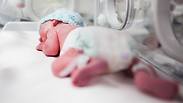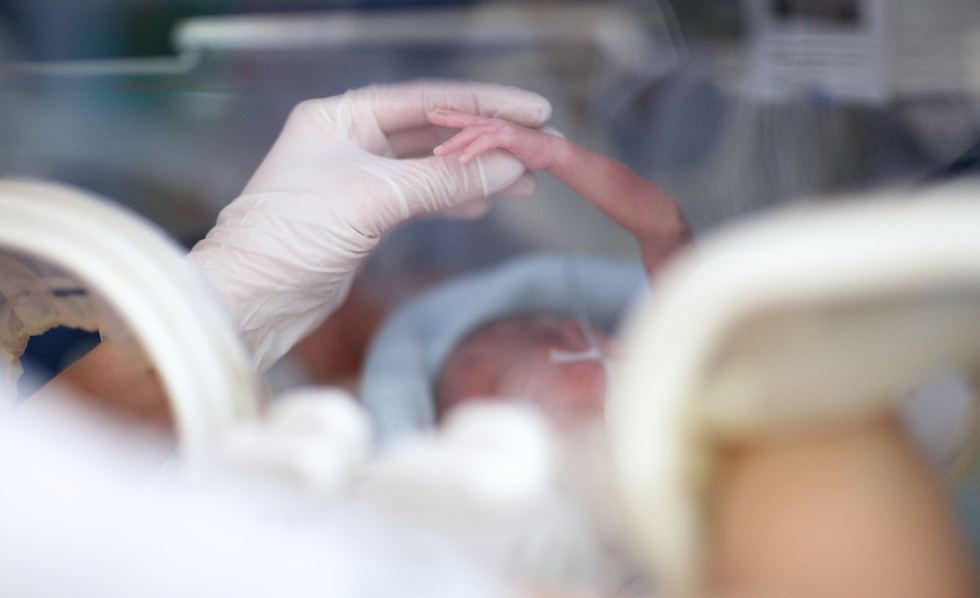
18 premature babies found carrying dangerous bacteria at Tel Aviv hospital
An antibiotic resistant bacterium has been found in 18 premature babies at the Tel Aviv Sourasky Medical Center; Ministry of Health: 'They are carrying the bacteria, but show no symptoms'; Sourasky Medical Center: 'It is a common bacteria found in most hospitals.'
Eighteen premature babies in Tel Aviv Sourasky Medical Center were infected with the VRE bacteria, which medical experts say is dangerous and antibiotic resistant.
The babies' infection was discovered over the last few days after a premature baby in the hospital's Neonatal Intensive Care Unit (NICU) was transferred to Schneider Children's Medical Center in Petah Tikva for an open heart surgery, where he underwent medical examinations and found to be carrying the bacteria.
Schneider put the infant in quarantine and notified the Sourasky Medical Center about the situation, which later tested the other infants in the NICU ward and found that 17 additional premature babies were carrying the bacteria.
The ward's staff isolated those infants from the rest and notified the Ministry of Health, which opened an investigation into the incident.
VRE is an intestinal bacterium which is very common In the United States due to the overuse of antibiotics.
"The bacterium is not so common in Israel," said an expert on infectious diseases on Sunday, adding that "in some hospitals, it is customary to check every infant that enters for the bacteria. I can't recall a case from recent years where so many infants were found to be carrying the bacteria."
Premature babies are a high-risk group for infectious diseases because of their very weak immune system. While VRE is not a violent bacterium, it is still a dangerous one.
It is important to note that the bacteria has been found in the infants' fecal matter but the infants themselves have not shown symptoms such as fever, shivers, high blood pressure or inflammation of the urinary tract, which might indicate an immediate danger.
"The problem is that if an asymptomatic carrier starts showing signs of the disease, it can become dangerous awfully fast," the expert added.
In a statement, the Ministry of Health said: "The Center for Disease Control (ICDC) has received a report on Sunday about the spread of the antibiotic resistant bacteria VRE at the Sourasky Medical Center's NICU. The incident was discovered following the transfer of a premature infant to Schneider's Children Hospital.
"All premature infants at the Sourasky Medical Center were tested and 17 were found to carry the bacteria. It is, as of now, asymptomatic and not dangerous. Medical staff in Sourasky's NICU have taken necessary measures to prevent the bacteria from spreading. ICDC has opened an investigation."
The Sourasky Medical Center said in response, "The VRE intestinal bacterium is a non-dangerous one and can be found in NICUs nationwide. With the cooperation of the Ministry of Health, all premature infants in the NICU were tested and precautionary measures were taken to insure the health of all infants in the ward. No infant has been found to be sick as it is only the asymptomatic carrying of the bacteria. The babies' parents were notified."











